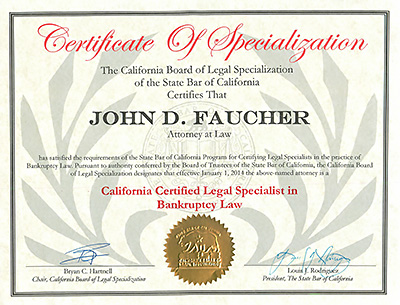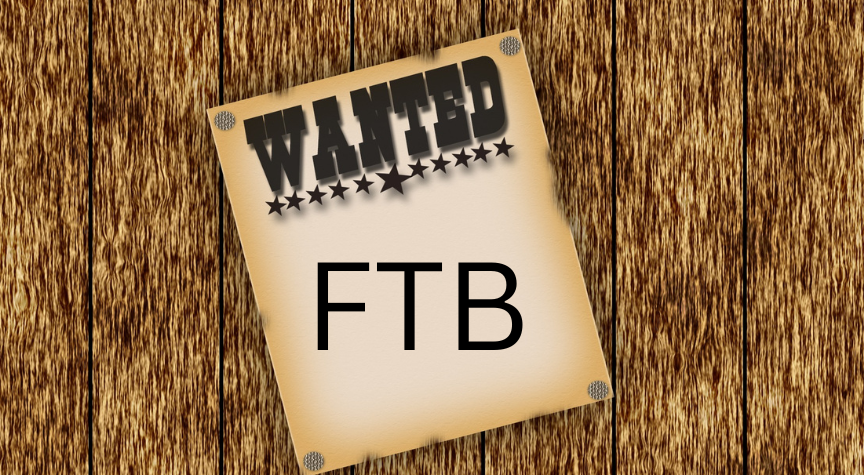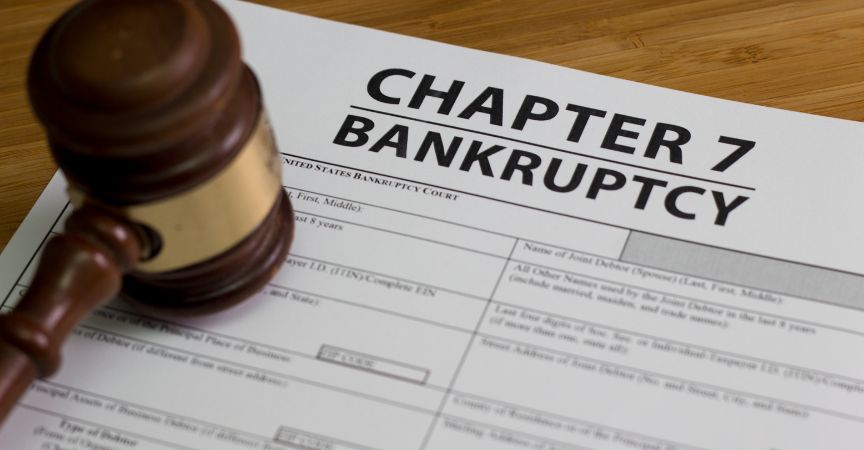I like doing off-beat things, especially in the Bay Area (which is kind of an off-beat capital), where I’m spending more time these days. After all, my Head Paralegal is a tuxedo cat named Sebastian. So, here’s Sebastian and my lesser-known, or under-appreciated, favorite things to do in the San Francisco Bay Area. Read more »
Blog
Are There Limits to Tax-Deductibility of Fine Art Donations by Artist?
Many thanks to my seatmate on a recent flight who posed this hypothetical question, worthy of a Harvard Law School Professor: if an artist sells her painting for $1 million, can she then paint an identical copy, donate it to a charity, and claim no income for the tax year, on the assumption that the value of the copy is $1 million (because that’s what she sold the original for)? The answer is “no.” Read more »
California State Bar Certificates of Specialization
As many of you may know, I hold a Certificate of Specialization in Bankruptcy Law and in a Certificate of Specialization in Tax Law from the State Bar of California. You probably also don’t see many California attorneys advertising this. That’s because fewer than five percent of lawyers in California have taken the exam and continuing legal education courses necessary to obtain this certificate. Read more »
IRS Offer in Compromise Hard to Get in Santa Barbara County
An Offer-in-Compromise is a contract between the IRS and a taxpayer to settle a tax debt for less than what is owed. I get lots of calls from folks excited at the prospect of being able to negotiate down what they owe IRS. And then I burst their bubble with the bad news: it is very hard to get an Offer in Compromise (OIC) from the IRS. Read more »
California’s Franchise Tax Board’s Most Wanted List
California’s Franchise Tax Board (FTB) publishes a Most Wanted List of delinquent California taxpayers on its website, for both individuals and corporations. The FTB’s Most Wanted List includes the taxpayer’s name, address and amount owed. In order to qualify for placement, a taxpayer must owe the FTB at least $100,000. Read more »
What Happens to California Homes with IRS Liens in Bankruptcy?
Many debtors in California file chapter 7 bankruptcy with a home that has an IRS tax lien on it. What happens in these cases? If the IRS has a federal tax lien on real property in California prior to a bankruptcy being filed, then that lien will survive bankruptcy. In other words, debtors cannot use bankruptcy to escape an existing federal tax lien on a California property, despite the fact that California bankruptcy law allows chapter 7 filers to take up to $678,000 in equity in a primary residence through bankruptcy. Read more »
How Long Does A Chapter 7 Bankruptcy Take in Thousand Oaks?
My clients often ask: how long does a Chapter 7 bankruptcy take? The short answer: it depends. It depends on how quickly the client organizes their information and documents; it depends on whether it makes sense to postpone filing to protect some assets that would be otherwise taken; and it depends on the Bankruptcy Trustee. I rarely have a bankruptcy take less than 4 months or longer than 8 months. The average is 5-6 months. Read more »
Is the IRS Audit in Everything Everywhere All at Once Accurate?
Everything Everywhere All at Once won seven Oscars at the 95th Academy Awards including for Best Picture. The movie begins with the havoc unleashed by IRS Agent Deirdre Beaubeirdra (Jamie Lee Curtis won Best Supporting Actress), when she audits the laundromat of Evelyn & Waymond Wang (Michelle Yeoh won Best Actress and Ke Huy Kwan won Best Supporting Actor. But are the audit scenes realistic? Short answer: yes, but mostly no. Here’s how the movie differs from a real-life IRS audit. Read more »
Best Restaurants for Lunch in Westlake Village
I go out for lunch a lot. I need to network, both to keep my name in front of other professionals who may hear of people needing my help, but also to get out of my office and have social interactions with someone other than Sebastian, my Feline Paralegal! Because I lunch so often, I feel qualified to share my list of the best restaurants for a business lunch in and around Westlake Village. Read more>>
What Happens After A Chapter 7 Bankruptcy Is Filed?
You decided to declare personal bankruptcy. You’ve given the information about your debts, assets and finances to your bankruptcy attorney. S/he just filed your petition with the Bankruptcy Court. Now what? What happens after a Chapter 7 Bankruptcy is filed? Read more>>










